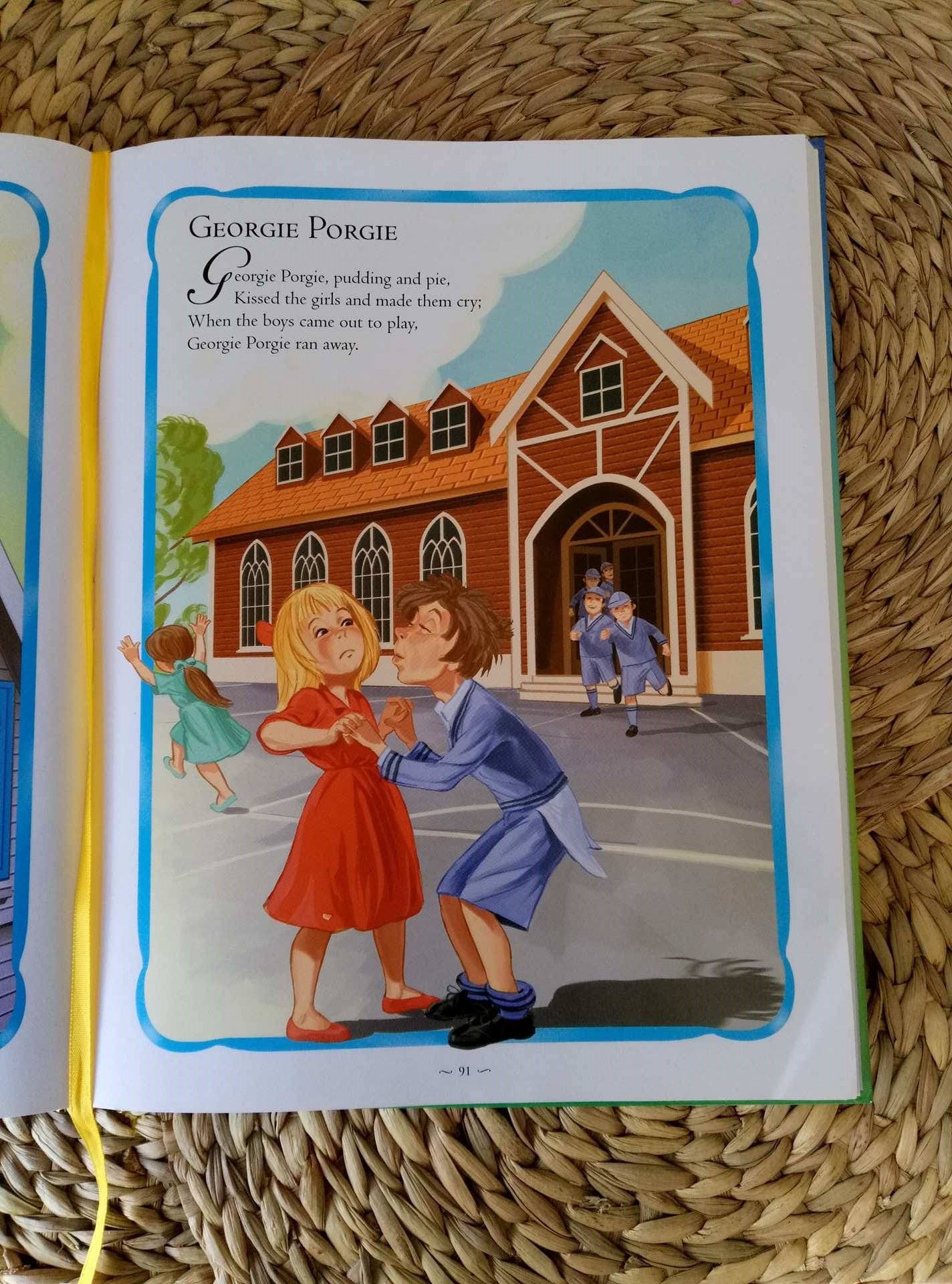When Bedtime Stories Give You Nightmares
Last night my daughter (aged 6) chose the Nursery Rhyme Collection Book for her bedtime story.
“Can you read this one please Mum?” she asked.
I glanced over. It was Georgie Porgie, a classic. Here it is:

“I really don’t want to read that one. I don't like it. Can you choose another one please?” I responded.
“Why mum, what’s wrong with it?” my daughter asked.
I paused. Then I realised that my daughter was essentially asking:

What's the big deal? Why not just read the story?
What's not to like, it is a kid's story?
My daughter had chosen her own story, I should respect her decision.
(And I should be thankful it’s such a short story!)
- Refuse to read the story because I object to the message.
- Read the story and have a conversation with my daughter about why I didn’t like the story.
Adult: Can you tell me what’s wrong with the story?
Child: I don’t know.
Adult: OK. How about we read it again and have another think about it.
(we reread the story)
Child: Because he kissed the girl and made her cry.
Adult: Great. And why do you think that that’s not OK?
Child: Because he didn’t ask and she cried.
Adult: What do you think he should have done instead?
Child: Asked first.
Adult: Good thinking. Can you see why the story made mum sad and didn’t want to read it?
Child: Yip.
Adult: So what should that girl do now?
Child: Say "Stop it!" and go and tell an adult you trust.
Adult: That sounds like a great plan.
It was quick conversation – two minutes maybe. Sure we weren’t talking about rainbows and princesses, but it was an important conversation to have. And just because the conversation was quick doesn't diminish its importance. It was a teachable moment.
Here’s What The Exercise Teaches
HOW TO BE A CRITICAL MEDIA CONSUMER
By encouraging readers (of any age) to question what they read they are learning that not everything is true, healthy, or appropriate. This applies to all media: books, television, and the internet, and even to content that is intended for them.REINFORCES FAMILY / CLASSROOM / LIFE RULES
Whatever they are, and whatever form they take, by using stories like this to get children to practice saying the rules out loud allows them to have examples of how they relate to their life. With Georgie Porgie we talked about “Ask before you touch people” and “My body my rules”.PRACTICING HOW TO KEEP YOURSELF SAFE
By talking about what the girl could do in the situation (telling Georgie to stop and then go and tell a person we can trust), it creates visual memory (experience) about a situation that they then have the tools to deal with if they ever experience it.
How To Extend The Conversation
Create links between the story and the child’s reality:
To other media visuals of similar situations. For example the Doc McStuffins “Commander No” episode - see https://steemit.com/life/@sowhat/how-doc-mcstuffins-got-me-talking-to-my-kids-about-consent
To real life situations. Talk about if a friend, or an adult, maybe an Aunty or a Grandparent wants to kiss or hug you, even if they are trying to be kind, if you don’t want them to you can say "No". Repeat a phrase or two that works for your environment and your child (We used:“Ask before you touch” and “My body my rules”). Make these phrases easy for your child to understand, remember, and to use in a situation when they need to communicate effectively. Give your child the tools to know what to do in the situation: “You could give a hug, a high-five, shake hands, wave, or use your words”.
Using media moments as teachable moments doesn’t spoil the media experience, it enhances them.
Don’t allow bedtime stories to give your kids nightmares, use them as opportunities for learning by asking:

If you try this exercise at home I'd love to know how it went.
Remember to keep talking and keep asking questions
If there is a topic you would like me to discuss comment below, or check out my
website: http://www.sowhat.co.nz/
facebook: https://www.facebook.com/QuestionSoWhat/
THIS ARTICLE IS AN ORIGINAL CONTRIBUTION
Author: Melissa Gould, Ph.D (AUT), MCS, BCS (Hons), BCS.
Dr Melissa Gould holds a Ph.D from the School of Communications at Auckland University of Technology in Auckland, New Zealand. She worked as a Media and Communications Lecturer at the School, and now works as an independent researcher and writer. Her primary research areas include media communication theory and cultural studies that examine religion, gender, religion, and childhood.
This is so true, I also have some older story/rhyme books and the stories are not written for this day and age. Thanks for sharing this, I will have to give it a try with my 4 year old.
Thanks for your comment. Yes its scary how much content is "for kids" but is really inappropriate - often because its outdated. I'd love to hear how it goes with you 4 year old! x